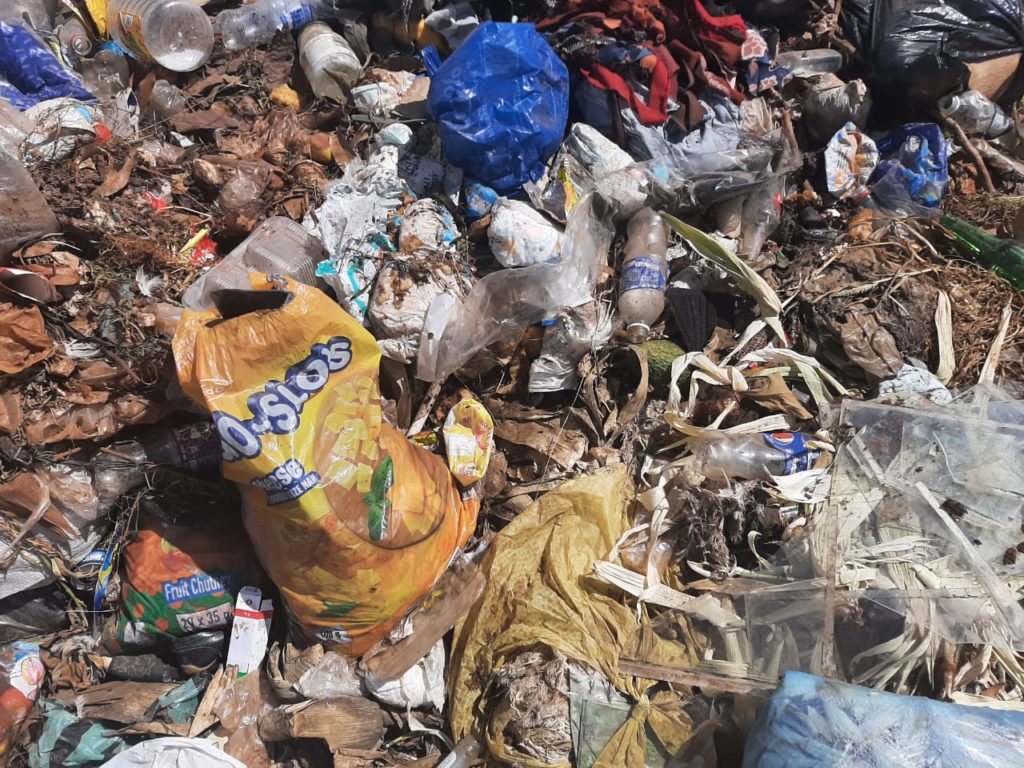By Thobekile Khumalo
Disposable diapers continue to pose a serious hazard to the environment due to their pollution on land perpetuated by poor solid waste management.
The disposable diapers are made of a variety of components comprising wood pulp, plastics, tissue paper, or polyester nonwoven fabric and nonpermeable film. Due to these components they take almost 500 years to decompose and end up being thrown away with general household waste.
Their complexity has made traditional recycling impossible and as a result they remain as solid waste piling up in landfills and their contents in the water system. Once in landfills they emit methane, a greenhouse gas 25 times more potent than carbon dioxide at trapping heat in the atmosphere.
Hundreds of billions of dirty diapers are disposed of each year globally as solid wastes and only a very small fraction of them are recycled. This is mainly due to the lack of technologies for efficient and cost-effective recycling.
In Zimbabwe Environmental Management Agency (EMA) argues that disposable diapers have far-reaching negative ecological effects that outweigh their convenience.

EMA Acting spokesperson Liberty Mugadza said the environmental watchdog is concerned with the issue of over accumulation of disposable diapers.
“Through our interactions and discussions with stakeholders the move to ban disposable of diapers was raised and taken into consideration. This is because in 2017 we realised that there is over accumulation of disposable diapers in the environment due to their affordability and an increase in mothers.
“Disposable diapers up to now remain a challenge and the only way to alleviate this problem is to educate our mothers on the proper channels of their disposal,” he said.
He added that if these are disposed of properly they can move from being solid waste to being biodegradable waste that is easy to manage.
“In our interactions with local distributors we noted that women need to be educated on how to dispose of diapers to improve waste management. They should be placed separately during refuse collection in that way it becomes easier to handle them and even more reliable and recommended is to remove the dirty then separate the cotton, the jelly part and plastic because it is the one that makes it difficult for them to decompose. When this is done accordingly we can treat disposable diapers as biodegradable waste because the decomposition process becomes easier”.

Mugadza said a local company introduced reusable diapers that can be washed, a good move which was going to reduce the amount of disposable diapers that we have in landfills but the market’s response was negative.
“Our challenge is with the pollution they do to the environment, due to our not so reliable local authorities who do not collect refuse regularly, people end up dumping these disposable diapers in bushes because they do not want to keep them for long but then after doing so dogs litter everywhere with these diapers.
“Now we are faced with over accumulation of disposable diapers, so local authorities around the country now have an arrangement whereby there is an open day for anyone to go and dump litter at designated dumpsites in case there is a delay in refuse collection.”
Both manufacturers and end users need to adopt best management practices so as to reduce accumulation of residual waste in the environment because it’s the responsibility of everyone to ensure that we live in a clean and safe environment.
According to EMA, Zimbabwe generates an estimated 1.65million tonnes of solid waste annually of which 90 per cent of the waste is either reusable, recyclable or biodegradable, meaning 10% of waste generated in the country is destined for land filling.
‘This article was produced with the financial support of WAN-IFRA Media Freedom. Its contents are the sole responsibility of <Thobekile Khumalo/BustopTV> and do not necessarily reflect the views of the WAN-IFRA Media Freedom,WAN-IFRA FR, or the Ministry of Foreign Affairs of Denmark.’
